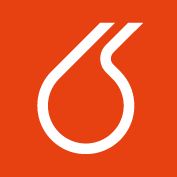Whether you’re dealing with a cold, a sore throat, or a sprained ankle, this page will help you understand how the healthcare system works in the Czech Republic and what to do if you need medical help during your stay.
How the Czech healthcare system works
The Czech Republic has a public healthcare system, but you will only have access to it if you have valid health insurance.
- EU students with an EHIC card (European Health Insurance Card) are covered.
- Non-EU students need to purchase private Czech health insurance before arrival.
Everyone is expected to be registered with a general practitioner (GP) (“praktický lékař”). The GP is your first point of contact for any non-urgent health problems. If necessary, they can refer you to a specialist.
Finding a general practitioner
After arrival, find a GP as soon as possible – don’t wait until you get sick. Your Czech insurance provider may provide you with a list of available doctors. Please note that some may not speak English or may not accept new patients.
To register, you may need to:
- Undergo a short initial health check
- Provide medical documents from your home country (translated if possible)
- Pay a registration fee
Once registered, your GP becomes your go-to doctor for everyday health issues.
General Practitioner Puls Health Center
Specialist care: by referral only
In most cases, you cannot book an appointment with a specialist directly. Instead, your GP will evaluate your condition and – if necessary – give you a paper or electronic referral ("žádanka"). Some exceptions apply for dentists, gynaecologists or psychiatrists, which you can usually contact directly.
What to do if you feel unwell
For common illnesses like colds, flu, sore throats or fevers:
- Contact your GP during regular working hours
- If it’s late and you can’t wait, go to the after-hours clinic ("pohotovost")
Pharmacies and over-the-counter medication
Most medicines are sold only in pharmacies ("lékárna").
You do not need a prescription for:
- Paracetamol (e.g. Paralen)
- Ibuprofen (e.g. Ibalgin)
- Cold and flu meds (e.g. Coldrex, ACC Long, Tantum Verde)
- Cough syrups, nasal sprays, eye drops, etc.
For antibiotics or stronger medication, you’ll need a prescription from a doctor. Many pharmacies are open until 6–8 p.m., but there are 24/7 emergency pharmacies in Prague too.
What to do in case of injury or emergency
- Minor injuries (e.g. twisted ankle): go to a trauma clinic ("úrazová pohotovost") – no referral needed
- Serious injuries or sudden illness: go to the emergency department ("urgentní příjem") at a hospital
- Life-threatening emergencies: call 112 (EU-wide emergency number) or 155 (Czech ambulance service).
Motol University Hospital – Foreign Patient Department
Useful tips
- Always carry your insurance card/certificate with you
- If you’re not sure what to do, ask your buddy, dormitory receptionist, or international office
- Don’t wait until you're seriously ill to register with a GP!








